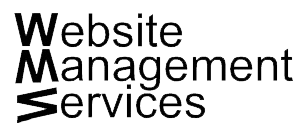We all know it is important to ensure you have effective security for your computer and website. You want effective security for your own computer so you can browse the world wide web without having to worry about obtaining viruses and bugs which will inevitably affect your personal computer.
By now, most people know the protocol to follow. Ensure you have effective and good firewalls in place, keep your applications up to date, use great router and watch those links you aren’t sure of.
To ensure your website is as safe as possible from hackers, bugs and viruses, you need to have software and hardware security or firewalls. You want to make sure you have taken measures to prevent unauthorized access from hackers and viruses on your website. Firewalls will assist in preventing hackers from obtaining private data and from planting viruses on your website. When selecting a firewall, you will want to make sure it includes antivirus, antispam, antispyware and content filtering.
There are two different types of firewalls. Hardware and software firewalls. Hardware firewalls are generally in the form of a broadband router which protects all devices and computers assigned to the router. The hardware firewall resembles the first measure of attack on potential threats to your computer but it has limitations in that unless the threat is visible to the firewall, it may let some less obvious threats filter through. If you are technically savvy, you may know how to block certain ports on your router to limit the ability of threats to enter your computer but blocking ports may also prevent safe sites and browsing. Internet threats are tricky in that sometimes, the threat is not active until it leaves your network. The firewall did not detect the malicious threat so you think because it arrived on your computer it is safe. Sometimes, the threat or virus attacks when it leaves your computer in the form of you, yourself, sending the message back or opening link which you believe to be safe.
Whereas the hardware firewall runs outside of your computer in the form of a broadband router, a software firewall runs inside your computer. Software firewalls have a more effective method of filtering good content from bad content, safe sites from bad sites. Most software firewalls, when configured properly, will prompt you to accept or deny a link or invitation. This can be annoying at times, but for the safety of your browsing experience, the measure is effective. If you have initially accepted that a site is safe, the software firewall will remember this and will not ask you again if you have selected the site to be safe.
Basically, the difference between a hardware firewall and a software firewall is that the hardware firewall will allow most any site or potential threat through if it is disguised well enough. The software firewall is a step up added to security to more carefully inspect every potential threat and warn you in advance of the threat attacking your computer. Thus the hardware firewall is designed to keep the big and easily recognized threats from your computer and the software firewall keeps the smaller, less easily recognized threats away.
Here at Delta Decisions we use both types of hardware and software firewalls on all our hosting accounts. Doesn’t matter if you are on a shared hosting basic level plan or our top of the line dedicated Rackspace server, you are protected.
For added security on our hardware firewall we typically recommend a software program like Cisco Systems VPN client that resides on your computer and makes a secure connection directly to your website host. This allows us to keep the server more secure by not having so many “open doors”. We can then open some doors based on your current IP address and therefore prevent other computers from accessing the server as well.
If you have any questions about what type of security you need for your business needs, please do contact us.


